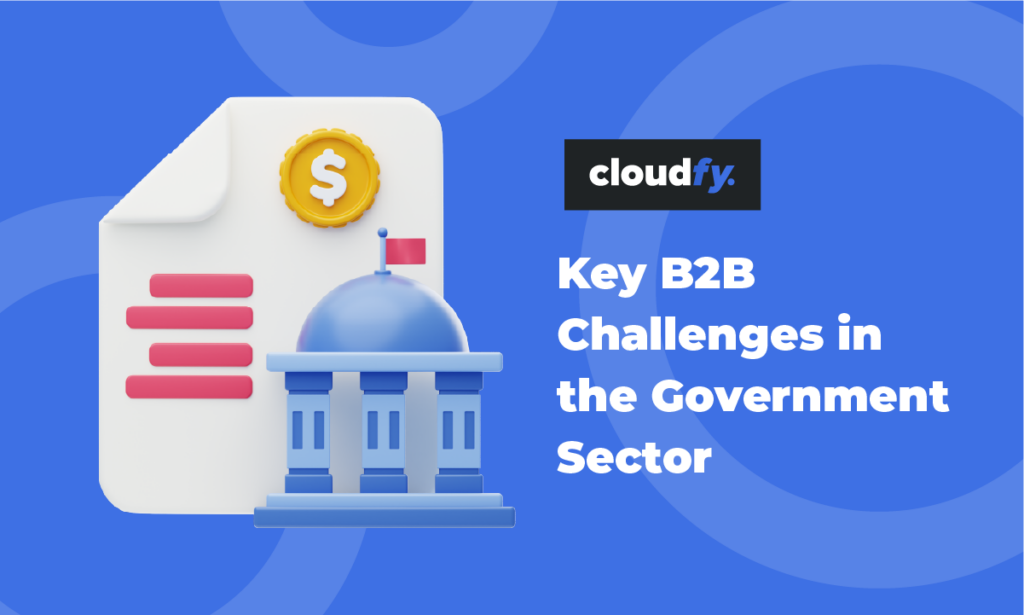Business to business (B2B) marketplaces now have an important strategic role to play in your business growth strategy. They are becoming popular because buyers gain access to a wide range of pre-approved sellers in a single convenient location and sellers can reach a larger customer base.
About three quarters of B2B purchasing decisions are now made by millennials, and more than four out of 10 of them don’t want to interact with a sales representative for their B2B purchases. They comfortably and confidently use consumer-based marketplaces and increasingly expect to use them for their business purchases as well.
Global B2B sales in online marketplaces are expected to be worth more than US$4trillion by 2025. This represents 14% of all predicted B2B sales, so you can’t afford to fall behind.
Now there are streamlined options to integrate marketplaces and retail partners with your business systems and sales channels. You can provide customers with a transparent and easy-to-use B2B ecommerce portal that will move your business to the next level.
B2B Marketplaces – Barriers and Opportunities
Some organizations have been reluctant to launch a B2B ecommerce platform because they are concerned it will change their longstanding in-person relationships with suppliers and clients. This is especially the case in sectors that involve high-value orders for plant, machinery, IT and telecommunications to transportation, consultancy and professional services.
However, younger B2B procurement professionals now expect to buy online, even for complex products and services. With powerful data and analytics tools there are also new opportunities to generate value beyond traditional purchasing and fulfilment. This can include technical data, after sales support, automated reordering and around the clock customer service. Working with high-quality pre-screened third parties this can also be extended to offer a wider range of complementary goods and services from a single B2B ecommerce portal.
What is a B2B Marketplace?
Online marketplaces, sometimes known as multi-vendor sites, provide a B2B ecommerce solution that allows your customers can view and buy a wide range of products or services in a controlled self-service digital environment.
They can deliver technical information and immersive content to help buyers find the right supplier and they can make transactions simpler and more transparent. They offer wider choice, added value, and improved efficiency. As a seller, they provide an effective B2B ecommerce platform that gives you access to a wider group of buyers.
There are four broad types of B2B marketplace offering:
✓ Products – consumable items such as office supplies and packaging or standard items like furniture and equipment. Some also provide services such as maintenance, repair, and operations.
✓ Time and materials – services including freight, travel, IT, short-term contract employees, and facilities management.
✓ Services – activities such as marketing, telecommunications, utilities, business accommodation, insurance, and legal and consulting services.
✓ Spinoffs – online B2B ecommerce platforms created by some larger companies that have been extended to include other suppliers.
Why consider B2B Marketplace Integration?
While you might be familiar with B2B marketplaces such as Alibaba and Amazon Business there are many other options that will suit complex B2B businesses and meet customer experience expectations. These could give you an advantage over your competitors with business benefits including:
✓ Streamlined operations – you can improve efficiency by including a third-party marketplace or your own bespoke marketplace solution in your B2B sales operations. Orders and inventory can be integrated across your sales channels to deliver consistent experiences to your customers. You can provide the same level of service whether your customers place their order on your ecommerce website, marketplace, physical store or via a mobile app. Delivery and fulfillment processes can also be optimized with improved visibility of orders even when you have a complex supply chain that involves multiple business partners.
✓ Customer acquisition – as part of your customer acquisition strategy a user-friendly marketplace will help B2B buyers to find and research the products and services they need. With easy registration and navigation, they can easily take the first important step on their journey to becoming a valued customer. When you’re running your own marketplace an agreement to share registration and sales details can be part of your onboarding process with third-party suppliers.
✓ Conversion – you might offer some of your most popular products on a general or sector-specific third-party marketplace to attract new customers. You can incentivize them to visit your own marketplace with special offers and benefits for registered users such as free product training. Once they have registered you can manage their buying experience at every step of the purchasing journey. You can give them Amazon-like recommendations to help you upsell and cross-sell and, thanks to integration with your enterprise resource planning (ERP) systems, they can have near real time information about their order status and easily reorder favorite products.
✓ Vendor management – many B2B organizations work with multiple partners and vendors to supply their goods and services, which is a significant operational overhead. A B2B marketplace can provide features like multi-vendor orders, inventory, and logistics management. This could include advanced shipping management, drop shipping, carrier selection, split orders, and order life cycle management.
✓ Business growth – economies of scale can be achieved with an integrated B2B marketplace that can grow with your business. As long as you have enough sellers and buyers, you can build trust over time and add value to the procurement process.
You can customize your marketplace to meet the unique requirements of your customers and manage your channel partners, customer expectations, and existing third-party relationships.
Creating your own B2B ecommerce portal allows you to become the hub for new and repeat purchases from your end-users with added-value products from trusted partners. By providing around-the-clock online purchasing you can free up sales and support staff for more customer-focused activities.
You can collect and analyze data about your customers to improve product development, your channel strategy, marketing, and sales. You will also have more control over your brand, pricing, promotion, channel partnerships, and retention.
How B2B Marketplaces will change procurement
Customers can easily find products, services, and suppliers and access general or contracted pricing and terms. Operating hours and time zones won’t affect your availability so you can compete on a global scale.
Long-tail spending can be simplified and managed more easily while buyers focus on more strategic purchasing decisions that offer higher returns for your business. You can reach new customers and offer benefits such as lower shipping costs and better market analytics, helping to increase your sales potential.
✓ One-stop shopping – buyers can obtain a clearer picture of their options through online price transparency which gives greater awareness of supplier options, improving both direct and indirect procurement.
✓ Delivery – advanced IT and logistics means you can offer competitive shipping rates via your marketplace. Your service can be both cheaper and faster than your competitors.
✓ Savings – your customers might spend between 15% and 30% of their revenue on indirect spending, so you have opportunities to offer savings that can make a significant difference. This is especially important for industries with high ratios of indirect to total spend and where their spending is typically fragmented, such as the public sector.
✓ Payment and compliance – integrating with your customers’ purchasing systems, your marketplace can automate, digitize, and simplify sourcing. Automation can be used to make sure purchase orders are accurate and reflect negotiated terms. Advanced-analytics can also help your customers to control indirect spend more flexibly with personalized catalogs, for example. Spending thresholds can be easier to establish and apply with the option of purchase cards for use below pre-set thresholds.
Choose a complete B2B marketplace solution
Cloudfy is a best-in-class B2B ecommerce platform for manufacturers, wholesalers and direct to consumer (D2C) sales. It provides an industry-leading connector to seamlessly integrate with global B2B marketplaces and your retail partners.
One pre-built, turn-key package is all you need to manage every part of your order and fulfillment process. You can expand your reach by taking on new partners and make the best use of your ERP systems. You can create an all-inclusive sales portal, simplify your processes, and have capacity to scale as your business grows.
Book a free Cloudfy demonstration to find out how you can easily integrate B2B marketplaces into your business growth strategy.






